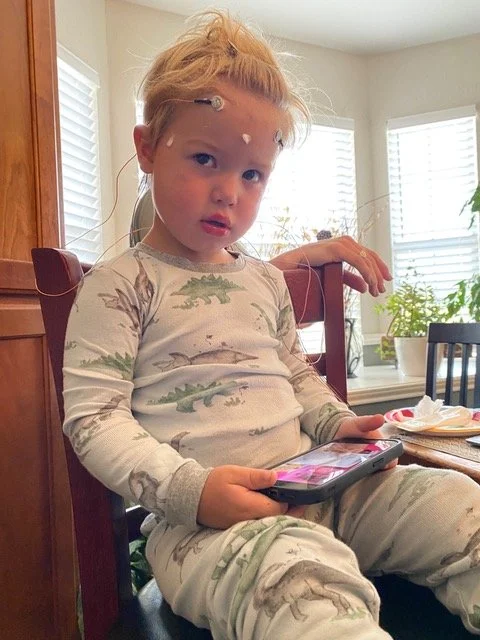Redefining Focus: Drug-Free Solutions for Kids with ADHD
As the prevalence of ADHD in children continues to rise, the limitations and side effects of traditional medication have left parents seeking alternative, drug-free solutions. Imagine a child struggling to concentrate in school, facing challenges in social interactions, and experiencing daily frustration. At Renewed Pathways, we understand the impact of ADHD on children's lives and offer a non-invasive therapy that reshapes the brain's neural pathways without the need for medication.
Join us as we explore the science behind non-invasive therapy and the personalized treatment plans that empower kids with sustainable, drug-free solutions for ADHD.
Understanding Drug-Free Solutions for ADHD
ADHD, characterized by inattention, hyperactivity, and impulsivity, poses significant challenges for children in various aspects of their lives. Traditional medication, while commonly prescribed, often comes with side effects such as sleep disturbances, decreased appetite, and mood swings. Parents are increasingly seeking drug-free alternatives due to concerns about the long-term impact of medication on their children's development.
Challenges of Medication
Medication for ADHD may provide temporary relief but does not address the underlying neurological imbalances. Side effects such as irritability and decreased appetite can impact a child's overall well-being and quality of life.
Seeking Drug-Free Solutions
Parents face the daunting task of finding effective, non-invasive therapies that can alleviate ADHD symptoms without the use of medication. The quest for sustainable solutions leads many families to explore non-invasive therapy options that offer promising results without the associated side effects.
In the ADHD management space, non-invasive therapy emerges as a beacon of hope, offering a safe and effective alternative to traditional medication. By understanding the challenges of ADHD and the limitations of medication, parents can make informed decisions about pursuing drug-free solutions that prioritize their children's well-being and long-term development.
The Science Behind Drug-Free Solutions for ADHD
Non-invasive therapy operates on the principle of harnessing the brain's neuroplasticity to rebalance neural pathways and regulate brainwave patterns, specifically targeting ADHD symptoms. By utilizing IASIS Micro-Current Neurofeedback technology, this therapy stimulates the brain's self-regulatory mechanisms, promoting improved cognitive function and attention control in children with ADHD.
Neuroplasticity and Brain Regulation
Non-invasive therapy leverages the brain's remarkable ability to adapt and reorganize itself, leading to positive changes in neural connectivity and function. This therapy encourages the brain to self-regulate, resulting in enhanced attention and reduced impulsivity.
Micro Current Stimulation
The use of micro current technology ensures a gentle and painless stimulation of the brain, making it a safe and well-tolerated modality for children. This targeted stimulation aims to optimize brainwave patterns, promoting a balanced and regulated neurological state without the need for invasive procedures or medication.
The non-invasive and safe nature of this therapy makes it particularly suitable for children with ADHD, offering a promising avenue for addressing their symptoms without the potential risks associated with traditional medication. Understanding the scientific principles behind non-invasive therapy empowers parents to consider this innovative approach as a viable and effective option for supporting their children's neurological well-being.
Personalized Treatment Plans for ADHD
Non-invasive therapy stands out for its ability to provide personalized treatment plans that cater to the unique requirements of each child with ADHD. By conducting comprehensive assessments practitioners can tailor the therapy sessions to address specific cognitive and behavioral challenges, ensuring a targeted approach that aligns with the child's individual needs.
Comprehensive Assessments
Practitioners conduct thorough evaluations to understand the child's cognitive strengths and areas requiring improvement, laying the foundation for personalized treatment plans. By identifying the specific neural irregularities contributing to ADHD symptoms, practitioners can customize the treatment to directly address these underlying issues.
Targeted Therapy Sessions
The personalized nature of non-invasive therapy allows for targeted interventions that focus on enhancing attention, impulse control, and cognitive flexibility based on the child's unique profile. Tailoring the therapy to the child's specific needs ensures that the treatment directly addresses their challenges without the risk of medication-related side effects.
The absence of medication's side effects in non-invasive therapy further underscores its appeal as a tailored and sustainable approach for managing ADHD in children. By offering personalized treatment plans that prioritize individualized care and targeted interventions, non-invasive therapy presents a compelling alternative to traditional medication, empowering children with ADHD to thrive without the burden of adverse drug reactions.
In conclusion, the innovative approach of non-invasive therapy offers a beacon of hope for children with ADHD, providing sustainable and personalized solutions without the burden of medication's side effects. By harnessing the brain's neuroplasticity and offering tailored treatment plans, this therapy empowers children to improve their cognitive function and attention control.
With a focus on safety and effectiveness, non-invasive therapy, such as Micro-Current Neurofeedback stands as a promising alternative, reshaping the landscape of ADHD management and offering a path towards enhanced well-being and neurological development. To learn more about how non-invasive therapy can benefit children with ADHD, visit Renewed Pathways for additional information and resources.


